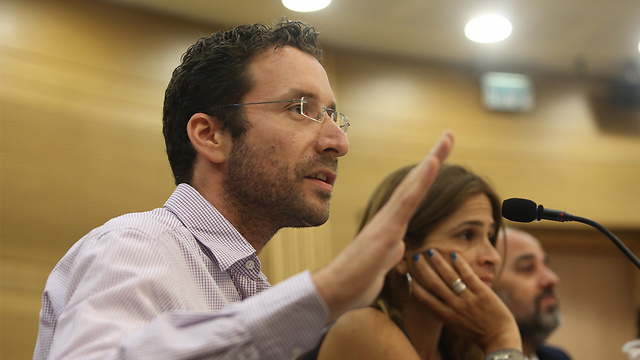
Health Minister fighting for nursing reform
Despite delays and budgetary arguments, Health Minister Yaakov Litzman is trying hard to push through the public insurance nursing care act: ‘Our obligations to the next generation require bringing systematic change to the elderly population in Israel.'
Minister of Health Yaakov Litzman commented Monday morning on the future of the Public Nursing Care Insurance reform, which has elicited strong criticism from the Treasury and has not been included in the Economic Arrangements Law.
Litzman said that he supports raising health tax by half a percent in order to finance the necessary additions to the system, while the Treasury is worried that a tax increase will be perceived negatively by the public, and has tried to postpone it several times.
Litzman presented the results of a poll showing public support for raising the tax in exchange for national long-term care. "I have never given up on long-term care. The Governor of the Bank of Israel also supports the plan," said Litzman.
The reform is supposed to go into effect in another five months on the first of January, 2017, with the goal of providing long-term nursing care insurance at no additional cost for every citizen. However, according to those close to Litzman, the reform is proceeding too slowly and may not be ready for implementation by the outset of 2017. In response Litzman has threatened to quit the governing coalition, thereby bringing down the government, unless the reform is not implemented as agreed upon.
Nir Kedar, the Director General of the Ministry of Health, said that Israel currently has 200,000 elderly people under constant care and that number is growing quickly. "It is important to remember that Israeli society is getting older. In 2021, the number of elderly will grow by 20,000 a year. One of the problems is fragmentation: there is no one to take responsibility for elderly care."
According to data from the Association for Civil Rights in Israel, the elderly population has the highest growth rate in Israel. In 1955, the elderly population comprised 4.8% of the overall population, compared to 10.4% at the end of 2011. According to the Central Bureau of Statistics, the elderly segment of the population will soon stand at 13.7% meaning that over the next two decades Israel will experience a significant demographic shift, with an increase in the number of elderly citizens.
The percentage of those who are eligible for nursing care benefits increases with age, and 53% of those aged 85 and up are eligible. 42% of the financial burden for long-term care services—home care or institutional care—falls on family members, even with the public paying a national health insurance tax every month.
MK Itzik Shmuli stated that in the upcoming state budget, despite promises, the national long-term care insurance will not enter into legislation and "the withdrawal of the promise of the Ministry of Health to promote the necessary budget for long-term care is both infuriating and disappointing. There is no greater need in the health system and due to last minute political deals, the most important reform was left out and hundreds of thousands of those in need will be pay dearly."
Litzman accused the government of abandoning its responsibilities to the elderly. "It is unfortunate that the State of Israel is neglecting the elderly that require long-term care,” he said. “Our obligations to the next generation require bringing systematic change to the elderly population in Israel. We must put an end to this difficult and complex situation, which makes it difficult for those who are in need of nursing care and their families."
The reform should include, among other things, doubling the hours of eligibility for nursing care, incentives for clinics to conduct house calls, and termination of eligibility rights based on the income of the elderly person's children.













